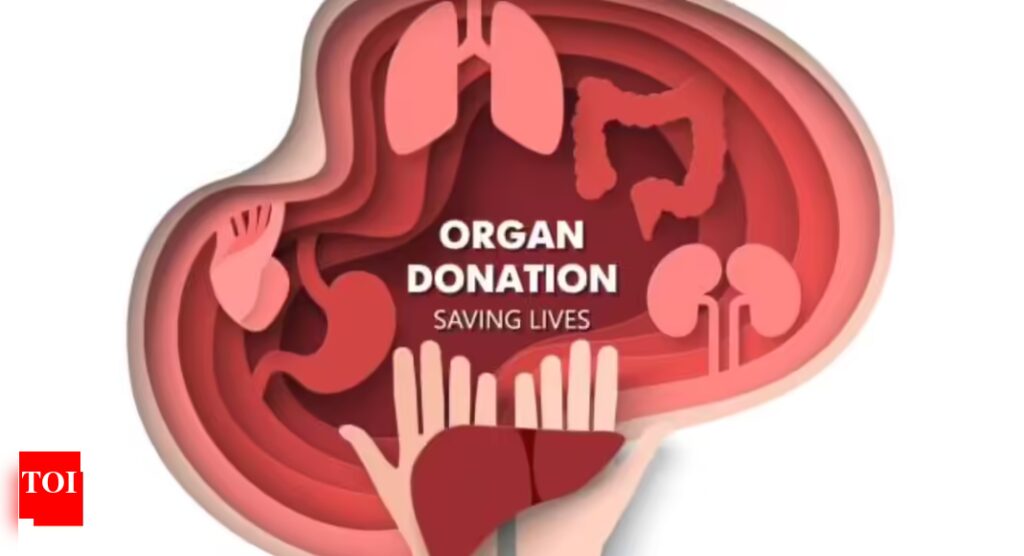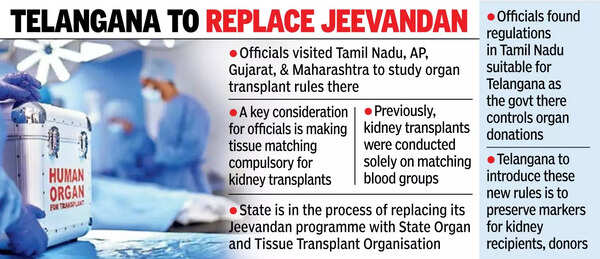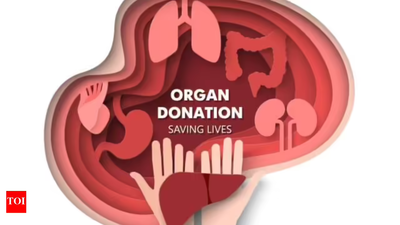Telangana to frame organ-specific transplant rules, eyes stricter monitoring and tissue matching rules | Hyderabad News

HYDERABAD: After the Telangana assembly recently adopted the central Transplantation of Human Organs and Tissues Act of 1994, the state govt is now establishing additional regulations. A major focus is on having specific regulations for each type of organ to prevent exploitation, illegal activities and ensure that organs are accessible to ordinary individuals, stated sourcesFollowing the adoption of the central Act, a team of officials visited Tamil Nadu, AP, Gujarat, and Maharashtra to study their organ transplant rules. One of key considerations before officials is making tissue matching compulsory for kidney transplants. Kidney transplants were conducted solely on matching blood groups.The state is also in the process of replacing its existing Jeevandan programme with the State Organ and Tissue Transplant Organisation. Among all the states, officials found the regulations in Tamil Nadu suitable for Telangana as the govt there controls organ donations. It was also observed that though rules are good in Andhra Pradesh, monitoring was missing. Experts highlighted the “Andhra link” to many illegal organ rackets in Telangana, emphasising the need for stricter monitoring in Andhra Pradesh.

One of the major considerations for Telangana in introducing these new rules is the preservation of markers for kidney recipients and donors. These markers are vital for the success of organ transplants. Tissue typing, or HLA (Human Leukocyte Antigen) typing, is an essential test in kidney transplantation that determines compatibility between the donor and recipient. It identifies specific proteins on cells that help the body distinguish between “self” and “non-self,” playing a critical role in preventing organ rejection. By matching these antigens, doctors can assess the risk of rejection and select the most compatible donor-recipient pair, ensuring a successful transplant outcome. Authorities added that while this process is currently not being implemented, it could be introduced in the future.






